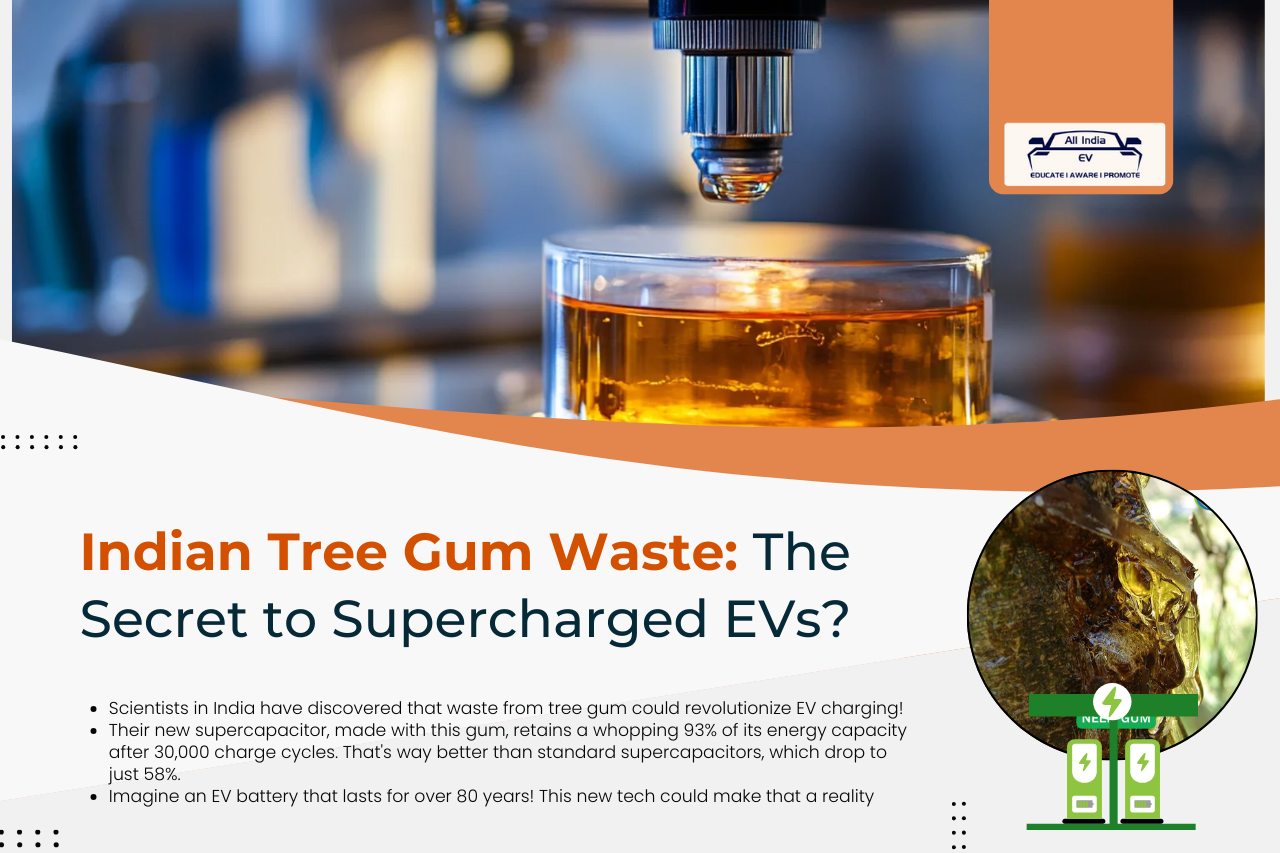
A Breakthrough in Supercapacitor Technology Could Revolutionize Electric Vehicle Charging
In an exciting new development, researchers from India, South Korea, and Scotland have discovered that gum waste produced by trees in India could play a crucial role in transforming the sustainability and performance of next-generation supercapacitors. This breakthrough has the potential to enhance electric vehicle (EV) charging systems, offering faster, longer-lasting, and more sustainable solutions.
The Problem: Supercapacitor Degradation and E-Waste
Supercapacitors are widely used in electronics and electric vehicles due to their ability to offer fast charging and discharging. However, a major challenge has been their gradual degradation over time, caused by the corrosive acidic electrolytes that lead to reduced efficiency and lifespan. This degradation contributes to e-waste and presents a significant challenge to the future of energy storage.
A Sustainable Solution: Gum Kondagogu and Sodium Alginate
In a groundbreaking study, the research team discovered that by combining gum kondagogu, a waste by-product from the Cochlospermum gossypium tree in India, with sodium alginate, they could create a biodegradable biopolymer, known as ‘KS’. When introduced into the supercapacitor electrolyte, KS forms a protective layer over carbon electrodes, which reduces wear and enhances energy transfer efficiency, significantly improving the supercapacitor’s performance.
Key Highlights:
- Improved Performance: The modified supercapacitor retained 93% of its energy capacity after 30,000 charge cycles.
- Extended Lifespan: A typical supercapacitor only retains 58% of its energy capacity after the same number of cycles, making the gum-enhanced version far superior.
- Eco-Friendly: The biopolymer made from gum kondagogu offers an environmentally sustainable solution, addressing the issue of waste disposal in India while promoting recyclability and biodegradability.
A Game-Changer for Electric Vehicles and Sustainability
This discovery marks a significant leap toward reducing the environmental impact of energy storage devices and improving the performance and lifespan of electric vehicles. According to Dr. Jun Young Cheong, from the University of Glasgow’s James Watt School of Engineering: “The gums used in this study don’t have many practical uses and are actually a headache for the Indian government to dispose of. Through this research, we’ve found a way to make something genuinely impactful from this gum, creating a biodegradable, recyclable biopolymer that can extend the life of supercapacitors dramatically.”
Supercapacitors That Could Last Over 80 Years
The potential for this KS-enhanced supercapacitor is extraordinary. Dr. Cheong estimates that with just one charging cycle per day, the supercapacitor could last for over 80 years without significant performance loss—a revolutionary improvement in energy storage technology.
Sustainable Future for Electric Vehicles
This research builds on earlier efforts to use biowaste in lithium-ion batteries and could pave the way for more sustainable energy storage solutions, reducing the environmental footprint of electric vehicles and energy devices. With this innovation, the future of EVs in India looks brighter and greener, ensuring longer-lasting, efficient, and eco-friendly charging systems.
As the demand for electric vehicles continues to grow, sustainable technologies like this will play a vital role in shaping the future of clean energy solutions in India and globally.










